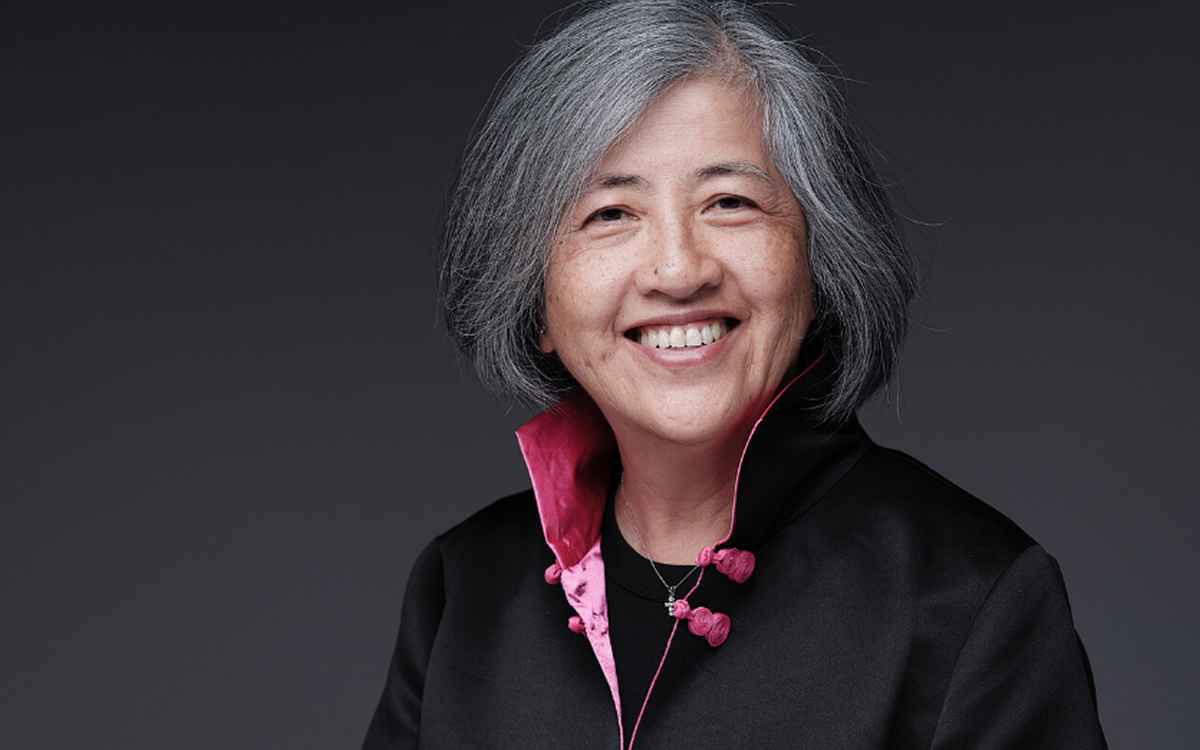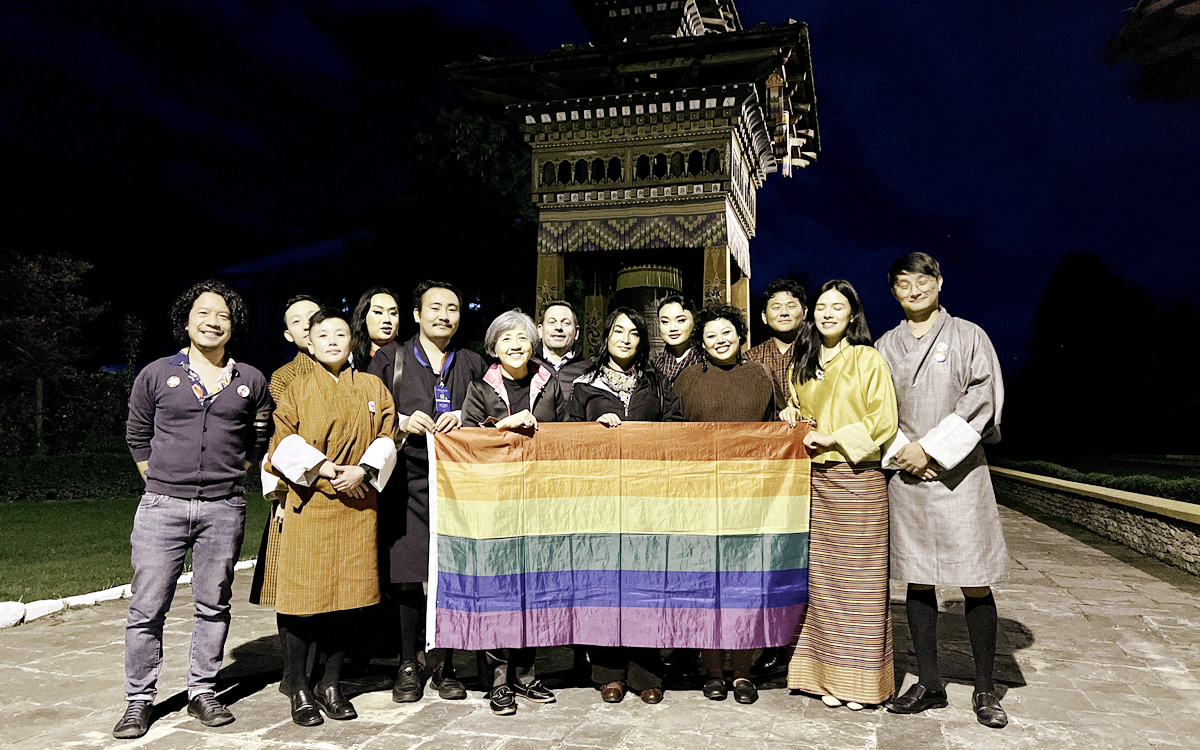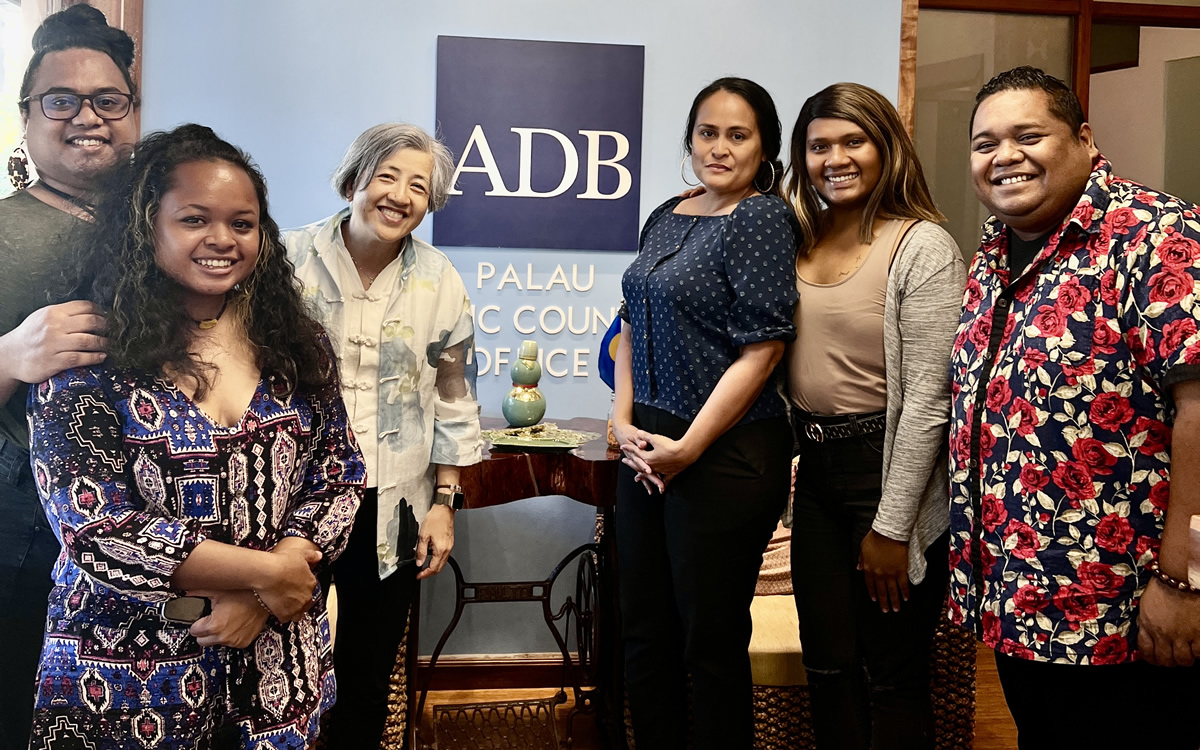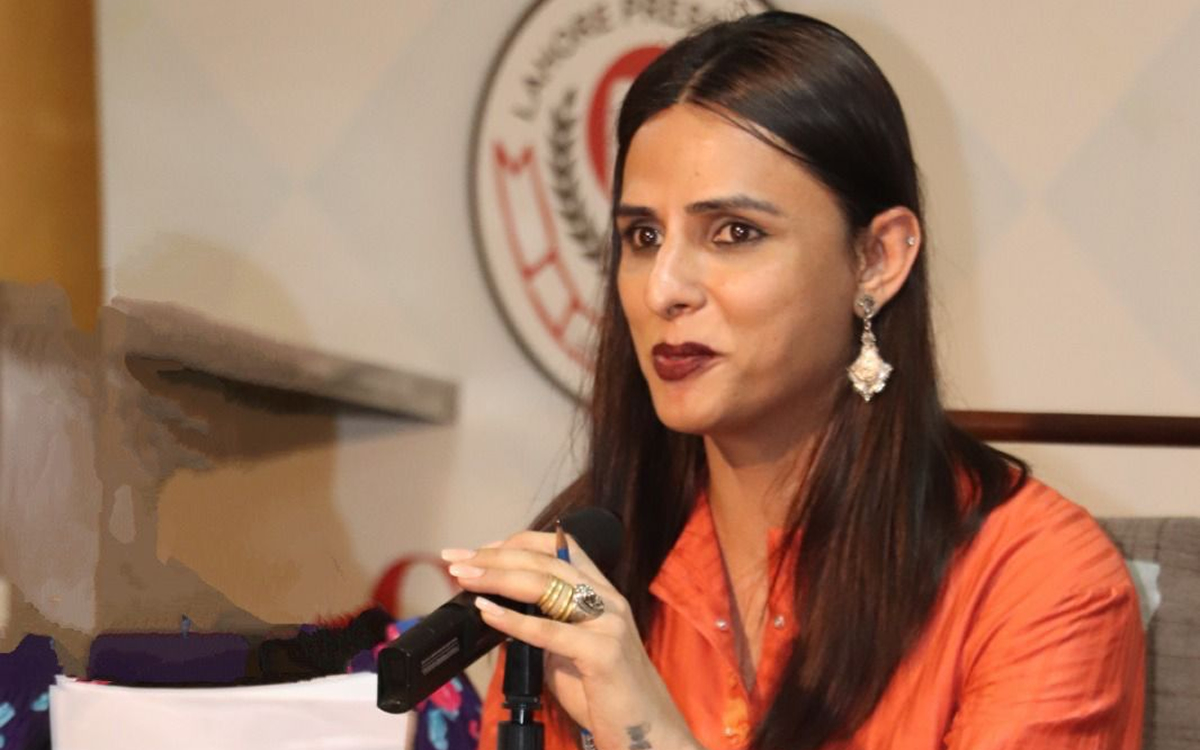Asia
U.S. continues to push for Asian Development Bank LGBTQ, intersex safeguard
Chantale Wong says Biden administration continues ‘to press our position’

The U.S. director of the Asian Development Bank last month said the Biden administration continues to push for the inclusion of sexual orientation and gender identity to the institution’s safeguards.
“We continue to press our position, the U.S. government position,” Amb. Chantale Wong told the Washington Blade on Oct. 15 during a telephone interview.
The ADB, which is based in the Philippines, seeks to promote economic and social development through the Asia-Pacific Region. Wong, who is the first openly lesbian U.S. ambassador, spoke with the Blade while she was in D.C. to attend the annual World Bank Fall Meetings.
The Treasury Department has endorsed the safeguard. Wong said Assistant Secretary for International Trade and Development Alexia Latortue, who headed the U.S. delegation to the ADB’s annual meeting that took place at its Manila headquarters in late September, raised the safeguard throughout the gathering.
“Alexia would bring up the safeguards and what the U.S. government’s proposal is and we were urging them to adopt that,” said Wong. “That was very powerful.”
The ADB board is expected to vote on the proposed safeguard in late 2023.
Wong recently met with activists in Bhutan, Palau
President Joe Biden in 2021 issued a memo that committed the U.S. to promoting LGBTQ and intersex rights abroad as part of his administration’s overall foreign policy. Wong is one of seven American ambassadors who are openly gay or lesbian.
U.S. House Speaker Nancy Pelosi (D-Calif.) during an Aug. 1 speech to the American Chamber of Commerce in Singapore spoke in support of LGBTQ and intersex rights.
Wong was among those who attended the speech, which coincided with a Congressional delegation to Singapore, Malaysia, Taiwan, South Korea and Japan that Pelosi led. Singapore Prime Minister Lee Hsien Loong on Aug. 21 announced his country will decriminalize consensual same-sex sexual relations.
“I was really pleased to see and hear the speaker bring up LGBTQ issues and how they’re (LGBTQ and intersex people) productive members of society and that criminal laws have no place in modern society to hamper a whole group of people of who they love, who they are,” said Wong. “It was incredible for me to be witness to the speaker’s message there.”
Wong early last month traveled to Bhutan to attend the Subregional Conference on ADB Gender Equality and Social Inclusion Framework in South Asia.
Lawmakers in the small kingdom in the Himalayas that borders India and China in 2020 voted to amend portions of the country’s Penal Code that had been used to criminalize consensual same-sex sexual relations.
Wong said she met with government officials, LGBTQ and intersex activists and representatives of other civil society organizations from Bhutan and five other countries — India, Nepal, Sri Lanka, Bangladesh and Maldives — while at the conference. Wong noted Bhutanese King Jigme Khesar Namgyel Wangchuck told her that his wife, Queen Jetsun Pema, publicly supported the decriminalization of homosexuality in the country.

Wong in September met with members of Living All Inclusive in Belau, an LGBTQ and intersex rights group in Palau, an island country in the Western Pacific.
She told the Blade that Palauan Finance Minister Kaleb Udui during their meeting initially said there is no discrimination based on sexual orientation and gender identity in his country because there are no discriminatory laws in place.
“When I spoke with the LGBTQ activists in Palau, they said yes, there is prejudice going on and it has an impact on their ability to get services and there’s consequences from those prejudice areas,” said Wong. “I was able to take their feedback and actually give it back to the minister. He was like, ‘oh, I didn’t know that and that’s good to know.”

Wong said she tries to meet with LGBTQ and intersex activists in the countries she visits and raises their concerns with government officials.
“I try to meet with the local LGBTQ activists in various places just to understand what their particular situation is and their plight and what their particular challenges are,” said Wong. “I try not to promise what ADB can do or not do, but certainly if there is anything that ADB is doing that’s harmful, I want to know that.”
Wong acknowledged anti-LGBTQ and anti-intersex laws remain on the books in many countries in the Asia-Pacific Region. Wong also said it will be a “huge challenge in implementing” the ADB safeguards.
“We fully recognize that,” she said. “But because of criminal laws, members of the community are very much the most vulnerable of the vulnerable … an institution like ADB needs to step up to provide and protect those that are most vulnerable.”
Asia
Maldives activists say new president won’t bring LGBTQ rights to country
Island nation is a popular tourist destination

Maldives, a Southeast Asian country that is a popular tourist destination, on Sept. 30 elected a new president.
Doctor Mohamed Muizzu, leader of the Progressive Party of Maldives and the president-elect, secured 54 percent of the total votes. He defeated incumbent President Ibrahim Mohamed Solih of the Maldivian Democratic Party.
Maldives does not offer any rights to the LGBTQ community.
Consensual same-sex sexual activities are prohibited in the country under the Penal Code 2014. Same-sex couples can face up to eight years in prison and 100 lashes (for both men and women.) The penal code works under the Islamic laws that criminalize same-sex relationships in the country.
Solih in 2019 started to work on human rights concerns and LGBTQ issues in the country, but the previous government abandoned the work after Islamic extremists pressured them. Solih did nothing to prevent extremist groups from attacking the country’s democratic institutions.
“I believe for ordinary liberals it would be safer with the new government because when the Progressive Party of Maldives ruled before, they did not get personal with activists who were not connected to the opposition. They were busy fighting with each other,” said Ulfa M. Fahmee, a humanist creator and LGBTQ rights activist. “Now the ruling party wants international rights groups to see they value democratic values, so they don’t openly arrest opposition activists, instead they attacked those viewed as promoting liberal values.”
“(The) new president is already focused on bringing economic equality unlike previous government who sent islanders to pray for rain when the poor ran out of stored rainwater in the islands making Maldivians believe they have to sacrifice LGBTQ and irreligious for God to get necessities instead of asking from government,” added Fahmee.
Fahmee was forced to flee Maldives because of safety concerns after state-sponsored news outlets accused her of blasphemy.
She said the Maldivian Democratic Party ran a hate campaign against her while the opposition party was protesting against government officials who were caught doing a blasphemous report.
Fahmee told the Washington Blade that Maldivian media is not allowed to post pictures until a conviction is secured, but the press published her pictures while she was still under investigation, putting her in danger of being harmed by extremists. With pain and anger in her words, Fahmee told the Blade that local police still have not returned any of her and her family’s confiscated electronics.
Fahmee is currently living in exile.
“We don’t have an openly LGBTQ community in Maldives, but the current govt enjoyed inciting hate and violence against ordinary liberals who were seen as part of LGBTQ,” said Fahmee. “Whenever privileged elites were accused of any un-Islamic activity, (the) MDP government did hate campaigns against ordinary liberals and jailed many people while at the same time sending human rights fraud reports to international rights organizations blaming Islamists for the hate spreading. Islamists are usually after the government officials so govt tries to divert hate targeted at them by encouraging more state sponsored hate against liberals.”
LGBTQ activists have faced several challenges in the Maldives, including disappearances and death.
Radical Islamic extremists in June 2012 killed blogger, LGBTQ activist and journalist Ismail Khilath Rasheed. Authorities did not investigate the murder.
According to a report published by The Edition, a local Maldivian media outlet, former President Mohamed Nasheed and his newly formed party will be part of the incoming government and will take oath on Nov. 17 with Muizzu.
“There is going to be no change as a consequence of Dr. Mohamed Muizzu being president,” said Shakyl Ahmed, an LGBTQ activist. “Some say that it will get worse because ‘salaf’ (a group of sheikhs) is on the new president’s side, but the new president definitely won’t make things better for us.”
Ahmed told the Blade he is not hopeful about the new government. He said that the new president doesn’t change the lives of the LGBTQ community in the country.
“Most LGBT people in Maldives are Muslim, so most of them don’t support gay rights in Maldives, even if they are gay,” said Ahmed. “However, they do engage in sexual acts with the same sex in secret. There are a few of us who support gay rights and we are trying to progressively change people’s minds.”
Kit Died, another LGBTQ activist, told the Blade the president-elect will make the situation worse for the LGBTQ community in Maldives. Died added he is known to have connections with extremist factions.
“We have no support from the government at all — our existence itself is a crime — so all crimes against queer folk in this country get ignored,” said Kit. “Queer people get blackmailed, robbed, and sexually assaulted regularly here with no investigation or police report.”
“The Anti-LGBTQIA+ narrative in Maldives is upheld by the constitution,” added Kit. “The Maldives constitution is one of the few places in the world that mandates all its citizens to be Sunni Muslims. This creates a paradox for citizens who were born into the religion and want to leave or happen to be queer. There’s no space for queerness in the Maldives’ specific variety of Islam, which is stricter than most in practice thanks to the tiny population that is concentrated in very small cities.”
Ankush Kumar is a reporter who has covered many stories for Washington and Los Angeles Blades from Iran, India and Singapore. He recently reported for the Daily Beast. He can be reached at [email protected]. He is on Twitter at @mohitkopinion.
Asia
Pakistan resumes issuing ID cards to transgender people
Federal Shariat Court in June ruled against trans rights law

Pakistani authorities have resumed the registration of transgender people and issuing identity cards to them after the Supreme Court’s Sharia Appellate Bench on Sept. 25 ruled on the issue.
An Islamic court on June 13 ordered all data acquisition units to halt the registration of trans people and to issue identity cards only to males or females.
The Supreme Court in 2009 extended civil rights to the trans community. Pakistani MPs in 2018 passed a historic law, the Transgender Persons (Protection of Rights) Act, that guaranteed all the rights available for all citizens to trans people, and prohibited any discrimination based on gender identity.
Jamiat-e-Islami, Jamiat Ulema-e-Islam and Tehreek Labbaik Pakistan and several other Pakistani religious political parties in 2022 raised objections to the law, stating it was un-Islamic.
The Federal Shariat Court in May struck down three sections of the Transgender Persons (Protection of Rights) Act and said Islamic teachings do not allow anyone to change their gender at their will. The court also said gender assigned at birth shall remain intact.
The Islamic court’s June 13 verdict prohibited any new registration for an identity card with an X gender marker or update an older one. The National Database and Registration Authority after the ruling issued that halted the registration of trans people. Individuals in Pakistan need ID cards to open bank accounts, seek legal aid, report a crime to the police, ask for medical help and receive a passport.
NADRA is an independent agency that regulates the government database and registration of sensitive information of citizens. The Federal Shariat Court is a constitutional Islamic court that scrutinizes and determines if laws made in Parliament comply with Sharia laws.
Nayyab Ali, a trans rights activist in Pakistan, during a telephone interview with the Washington Blade said the court’s voting bloc is based on religious elements. She also said right-wing political parties target trans Pakistanis when they do not get publicity.
“Right-wing political parties picked up the transgender issues in Parliament, and started hate speeches on transgender laws,” said Ali. “There is also a divide in the transgender community in Pakistan. Some transgender factions also support right-wing political parties to strengthen their agenda. People inside the government came from the grassroots level of society. Society has an extreme level of phobia and stigma for the transgender population, so when they come to power, they make policies that are against the transgender community.”
Ali told the Blade that former Prime Minister Imran Khan introduced an “Islamic utopia” in Pakistan and implemented an Islamization policy in his day-to-day politics, which created more hatred against trans community and affected society at large.
Ali on X, formerly known as Twitter, praised the decision that allowed the resumption of issuing ID cards to trans people. Documents the Blade obtained indicate she is one of those who challenged the Federal Shariat Court’s decision.
Kami Sid, a trans activist and executive director of Sub Rang Society, a Pakistan-based LGBTQ rights organization, said the community is happy and quite hopeful for a better future.
“First we as a community were very much worried about the Federal Shariat Court’s decision,” said Sid. “But after several advocacy and meetings we are quite hopeful for the fight against the Federal Shariat Court decision, and now quite relaxed as a transgender activist, I must say the community is happy.”
Kami, like Ali, also challenged the Federal Shariat Court’s decision.
Kami told the Blade conservative parties over the last few years have become more willing to promote an agenda that opposes rights for women, children and trans people.
“Transgender rights are human rights,” said Kami. “That is why the previous government refrained from commenting on the Shariah Court ruling out of fear of the right-wing parties and because transgender people are not a top priority.”
Foreign Minister Jalil Abbas Jilani attended the annual UPR meeting in Geneva in January and received approximately 354 human rights-specific recommendations.
Iside Over, an online news website, reports Pakistan may not get an extension over the European Union’s Preferential Trade Arrangement over its failure to improve its human rights record, among other reasons. Kami told the Blade the Generalized System of Preference, or GSP, from the EU has put pressure on the Pakistani government to address human rights-specific issues.
Ankush Kumar is a reporter who has covered many stories for Washington and Los Angeles Blades from Iran, India and Singapore. He recently reported for the Daily Beast. He can be reached at [email protected]. He is on Twitter at @mohitkopinion.
Asia
UN human rights experts condemn Taliban over treatment of LGBTQ Afghans
Extremist group regained control of country on Aug. 15, 2021

United Nations human rights experts on Monday sharply criticized the Taliban over its treatment of LGBTQ and intersex people and other groups in Afghanistan.
“Two years ago, the Taliban seized power in Afghanistan. Since then, the policies they have imposed on the Afghan population have resulted in a continuous, systematic and shocking rescinding of a multitude of human rights, including the rights to education, work and freedoms of expression, assembly and association. Consistent credible reports of summary executions and acts tantamount to enforced disappearances, widespread arbitrary detention, torture, and ill treatment, as well as arbitrary displacement have caused increased concern,” reads a statement that Victor Madrigal-Borloz, the independent U.N. expert on LGBTQ and intersex issues, and others signed. “The hardest hit are women and girls, ethnic, religious and other minorities, people with disabilities, displaced persons, LGBTQ+ persons, human rights defenders and other civil society actors, journalists, artists, educators and former government and security officials.”
“Despite reassurances by the Taliban de facto authorities that any restrictions, particularly in terms of access to education would be temporary, the facts on the ground have demonstrated an accelerated, systematic and all engulfing system of segregation, marginalization and persecution,” the statement further notes.
The Taliban regained control of Afghanistan on Aug. 15, 2021. The last American forces withdrew from the country 15 days later.
The State Department in its 2022 human rights report notes the Taliban “criminalizes consensual same-sex sexual activity, and representatives routinely enforced this position through violence, intimidation, harassment and targeted killings.”
“Under sharia, conviction of same-sex sexual conduct is punishable by death, flogging or imprisonment,” reads the report. “Individual Taliban members made public statements reiterating that their interpretation of sharia includes the death penalty for homosexuality.”
The report further notes the Taliban “takeover of the country increased fears of repression and violence among LGBTQI+ persons, with many individuals going into hiding to avoid being captured by the Taliban. Many fled the country after August 2021. LGBTQI+ persons faced increased threats, attacks, sexual assaults, and discrimination from Taliban members, strangers, neighbors and family members.”
Outright International and Human Rights Watch in January 2022 released a report that includes interviews with LGBTQ and intersex Afghans who the Taliban have targeted. They include a 20 year-old man who said Taliban members “loaded him into a car” at a checkpoint and “took him to another location where four men whipped and then gang raped him over the course of eight hours.” The report also notes the Taliban beat a transgender woman in Kabul, the Afghan capital, and “shaved her eyebrows with a razor” before they “dumped her on the street in men’s clothes and without a cellphone.”
-

 LGBTQ Non-Profit Organizations5 days ago
LGBTQ Non-Profit Organizations5 days agoDay of [no] silence, a call to speak out against anti-LGBTQ+ hate
-

 Africa2 days ago
Africa2 days agoCongolese lawmaker introduces anti-homosexuality bill
-

 Colorado4 days ago
Colorado4 days agoFive transgender, nonbinary ICE detainees allege mistreatment at Colo. detention center
-

 Politics4 days ago
Politics4 days agoFirst lady warns Trump is ‘dangerous to the LGBTQ community’ at HRC event











